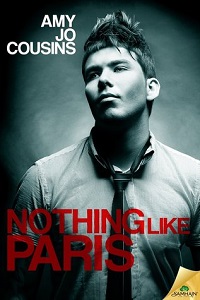So, um, I’ve got a kinky book coming out in June.
It’s one of those head-down, caution-to-the-wind type books. I wrote it – much as I write everything – because I wanted to read it.
The role and portrayal of sex in romance is something I’m pretty fascinated by. It’s kind of difficult not to be, really, because sex (for those who aren’t on the ace-spectrum) is part of life, part of how we communicate and express ourselves, part of who we are. It’s also something people in my bit of the world would rather dismiss and deride than explore. Basically, romance is one of the few fictional genres that allows (and encourages) open discussion not only of sex, but of a broad spectrum of sexualities and sexual behaviour.
That’s …. y’know … that’s awesome.
But not without issues.
Any fictional genre is built on signs and signifiers, tropes and expectations, and the way these shape our approaches and responses to fictional sex is something I spend a lot of thinking about as I read and as I write. It’s easy, of course, easy and cheap (a bit like me) to get all tangled up in the ways sex in romance novels is not “realistic.” If I wanted to visually represent what I would imagine about genitalia based on the way it behaves in romance novels, a penis would be like this:
And a vagina like this:
But I think, to some degree at least, focusing on (lack of) authenticity is to miss the point. Sex in romance novels is not mimetic nor, I would argue, is it meant to be. Realism is not necessarily the goal here. Representation is. And that’s what makes the ways we go about representing sex so super-interesting. There’s an essay in Dangerous Men and Adventurous Women (and, yes, my critical romance texts are old school, and I’m well aware that things have moved on since 1992, but I like to read this stuff) where Jayne Ann Krentz re-examines and re-frames romance tropes, not as the shallow clichés they’re usually dismissed for being, but as a complex series of signs that allow romance-familiar readers to engage with the text they’re reading. You meet a hero with steely grey eyes or a heroine with flame-red hair, and it communicates something diegetically (hey Emma Barry, look what you started) about the sort of story you’re going to get.
To me, the way we write about sex is very similar, in that we’re building a system of tropes and signs and, in essence, reaching a kind of consensus about what sex in romance novels looks like, what it’s for, and what it means. And this can be very liberating – romance novels tell us that pretty much all legal, consensual sexual activity is okay and not weird or immoral, that it’s good and right to enjoy sex and want to have lots of it, that it’s safe to share sexual fantasies and sexual vulnerabilities, and that our goofy orgasm faces are deliciously attractive to whoever we’re sleeping with. But because we’re passing tropes on, book by book, it also leads to the perpetuation of some pretty weird ideas. Like the hymen being … I dunno … a kind of adamantium barrier located about a penis-head’s depth into the vagina? Or the notorious fluttering anus, which is still seen in the wild, even today.
But here’s the thing, I’m not sure to what degree worrying about that stuff is also missing the point. As I argued at the beginning of this post, realism isn’t automatically the goal here. Tropes are representative and these two enshrined, um, anatomical impossibilities are no exception: the historical hero battering down his heroine’s hymen like Bolingbroke at Flint Castle is demonstrating his commitment to claiming her and a fluttering anus is, I think, meant to be a happy-to-see-you anus, receptive and excitable.
It’s not a straightforward matter to locate a genuine difference between tropes like these and the other things we perhaps not only take for granted but actively look for in our fictional romantic sex, like unflagging penii and perma-drenched vaginas. But I suppose, if I were to try to isolate that difference, for me it would lie in the difference between what you might call poetic license and actual misrepresentation. Given a kind of deep cultural unspokenness around women’s bodies and men’s arses, and the potential role of romance in challenging those (I would say harmful) silences … it feels to me counter-productive to keep fluffing the basics. Again, not necessarily because it has to be right to be valuable, but because I feel that misinformation about your own body in books that supposed to be for you (or at the very least about you) is the sort of thing that might mess you up. Women are not hermetically sealed virginity capsules. And the anus is not like the swamp in The Princess Bride.
And I do get why these ideas persist. Depending on who we are we might not have instant access to a hymen or a penis or a vagina (although we all have access to an anus, so there’s no excuse for that one) and so naturally – given the way genres build consensus and develop tropes – we inherit our ideas about how things work, or how things may be shown to work in fiction, from the texts around us.
But, this throws up new dilemmas when you move closer to the sexual margins and into areas where people may be writing about activities or behaviours of which they do not have direct experience. And please don’t get me wrong, I don’t think direct experience is necessary for writing abou.t anything or anyone (that’s what research and imagination and empathy are for). I can even think of occasions on which personal experience is not, in fact, helpful as it tends to lock you into a set understanding of The Way Things Are, as it is a very natural, human impulse to universalise from our individual experience.
By my usual torturous circumlocutions, this brings me back to my kinky book. The BDSM community has a pretty strong idea what BDSM is, some of which I agree with (we are not psychopaths) and a lot which I don’t (which I won’t go into here because it would take all day). And similarly m/m has reached its own consensus – partially derived from the BDSM community’s – about what BDSM in m/m looks like. And this where things start to get troublesome for me because I find this particular consensus quite rigid. As a simple preference, it’s no problem at all. But as a representation, I worry that it reinforces potentially damaging ideas about sexual identity and sexual behaviour and creates a sense that kink – especially kink between two men – has to subscribe to a certain forms to be perceived as authentic.
All of which pulls against much that is axiomatic to me, most particularly that sex is about context and power exists only where you choose to place it. To my mind, no consensual act or behaviour is inherently dominant or submissive, active or passive, empowering or degrading. And while I’m not trying to claim my kinky book is super-special and wildly different to all the rest of the kinky books, I did very much want it to reflect these ideas about love and sex and kink.
It has, however, also brought to me a dilemma. In basic terms, it’s a story about an experienced sub—a somewhat jaded thirty-seven year old surgeon—and an inexperienced dom, a nineteen year old university drop out. And, at least the first few times they have anal sex, the sub is the, ah, penetrator and the dom is the penetratee. Over the course of the book, the characters have quite a few conversations about kink, and the dom does spend some amount of time pondering the gap between the BDSM Scene’s understanding of what dominance is like and what dominance means for him … but something I quite deliberately shied away from exploring, addressing or even referencing was the power dynamics of the … well … the bumming. They just have sex— I would say romantic, kinky sex, but your mileage may vary—and whose dick goes where isn’t a relevant factor.
Except it apparently is a relevant factor.
A very trusted reader raised it and Chris, my lovely editor, mentioned it too. It struck them both as notable that the dom reflects upon and struggles against socially constructed notions of being a dom, but folds up like a deckchair for a good deep dicking. While it didn’t ring false to either of them in context, it also doesn’t adhere to either the m/m consensus or the BDSM consensus, and they were both concerned that it was something I should address because it wouldn’t be what readers were used to.
And, don’t get me wrong, I do see the point here. I even—to some extent—agree with it. It is, after all, my editor’s job to draw my attention to potential mismatches between what I’m selling and what readers are buying. And it’s mine not to pursue some solipsistic vision of my own ego, but to create something that readers can access and engage with and, hopefully, enjoy. I can also see that, in a book that spends a lot of time poking at social constructions of stuff, it probably seems a bit odd to avoid what to many people seems like a big one.
Ultimately, fictional portrayals of anything (including anal sex) come down to a careful negotiation of How Something Is, How The Author Thinks It Is, How The Author Would Like It To Be and What The Reader Is Expecting. And fucking up that negotiation can lead to something that reads as either inauthentic, implausible or alienating. So I don’t want to shove too hard against expectations, and certainly not to make some abstract point. I don’t want people to spend this book formulating a philosophy of buggery instead of, y’know, doing the sort of things people usually do when reading erotic romance.
But I’ve spent my whole life getting to a place where these sort of (I would say fucked up) ideas about sexual behaviour and sexual power not only do not challenge me but are profoundly irrelevant to me. And, honestly, as pathetic as it sounds, I’m kind of proud and glad to be here. Which is why it feels like retrograde step to be giving the question of power dynamics of anal penetration both consideration and page time.
In this book, at least, precisely because it is an erotic romance, and the focus is heavily on sex and sexual freedom. I do have characters who struggle with masculinity and queerness and bumming and blah blah blah, but what I’m resistant to is the expectation of struggle. That a pair of characters who are perfectly at ease with ceding and taking control, irrespective of what dick is where, require explanation.
Breaking through harmful expectations is important. But so is simply moving so far beyond them that they don’t matter—can’t can’t hurt us—any more.
The truth is every time I read a book that doesn’t feel the need to engage with these expectations, I feel my heart expand. For a little while, I can breathe and the air tastes good.
That’s how I want to write. I want to write in a space where the messed up shit is so completely irrelevant it might as well not exist. I want to create that space with my writing.
I want to build it with other writers and other readers. I want this to be our consensus.
























